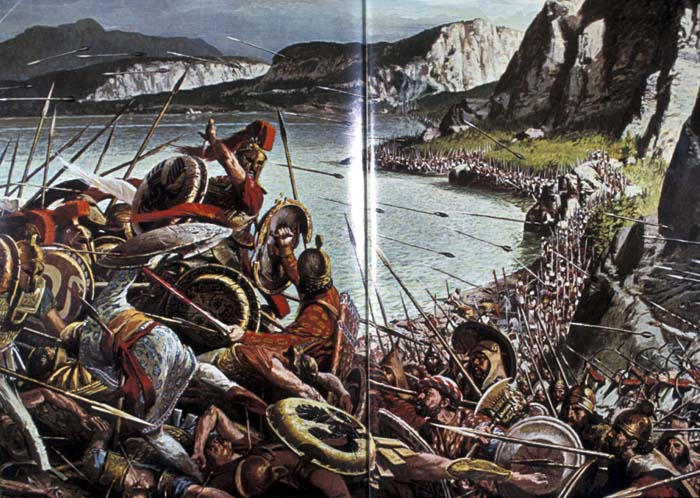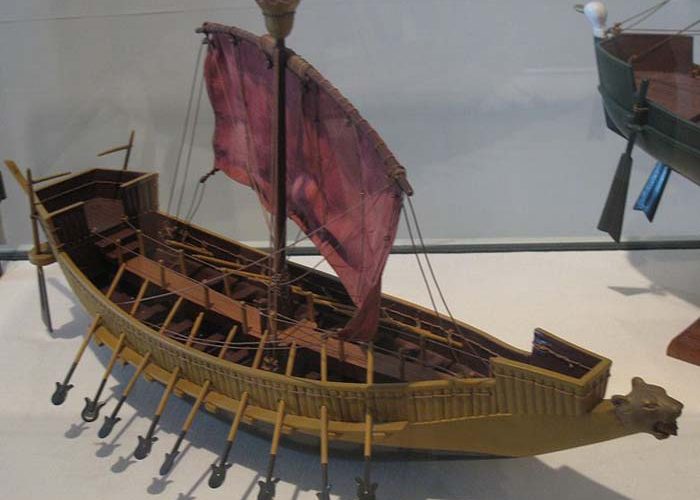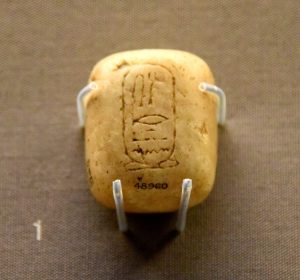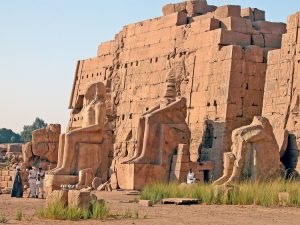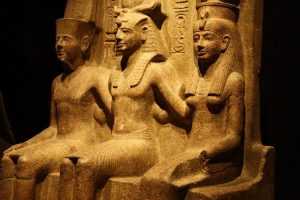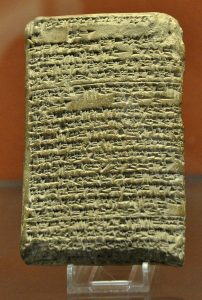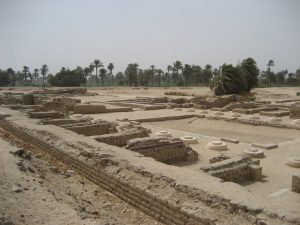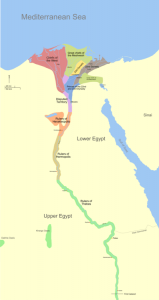Reputation in History
Reputation in History © Nick Taylor – Relief of Xerxes I Modern and ancient scholars often portray Xerxes I as a tyrant. His rule over ancient Egypt was harsh, disregarding local customs and beliefs left and right. Xerxes decided not to follow the ideas set by his predecessors, the notion that ruling with a fair, light […]
First Intermediate Period (2181 – 2055 BC)
First Intermediate Period (2181 – 2055 BC) The First Intermediate Period began sometime after the death of Pepi II, who had lived to be into his 90s, which meant that he had outlived his heirs. That caused problems with the succession, and the growing power of the provincial governors exacerbated matters. © Udimu – Soldier Figurines […]
Second Intermediate Period (1650 – 1550 BC)
Second Intermediate Period (1650 – 1550 BC) For much of this time, Egypt was under the control of the Hyksos, a Canaanite tribe from the north-east. They sacked Memphis which was then the capital and seized control of the country. Many Egyptians fled to Thebes where they eventually organized a resistance. The Hyksos had a major influence on the Egyptian […]
THE DEVELOPMENT OF PROFESSIONAL WARFARE
The Narmer Palette, an ancient Egyptiancermonial engraving, depicts the great king Narmer (c. 3150 BCE) conquering his enemies with the support and approval of his gods. This piece, dating from c. 3200-3000 BCE, was initially thought to be an accurate historical depiction of the unification of Egypt under Narmer, the first king of the First Dynasty. Recent revisions in scholarship, […]

Ancient Egyptian Agriculture
Agriculture was the foundation of the ancient Egyptian economy and vital to the lives of the people of the land. Agricultural practices began in the Delta Region of northern Egyptand the fertile basin known as the Faiyum in the Predynastic Period in Egypt (c. 6000 – c. 3150 BCE), but there is evidence of agricultural use and overuse of the land dating back to […]
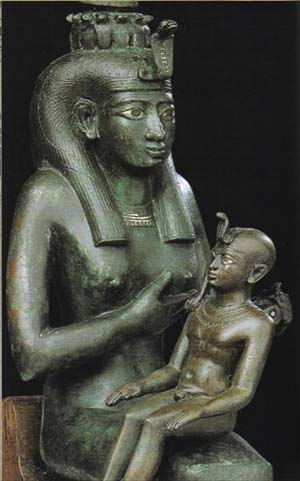
Isis | The Goddess of Fertility
Isis was the ancient Egyptian goddess of marriage, fertility, motherhood, magic and medicine. Many myths and legends exist about Isis in Egypt and Egyptian literature uses several names and titles for this goddess. Worship of Isis, her temples and her cult spread through Egypt and parts of Europe. Names, Titles & Roles Isis is the “Goddess […]


